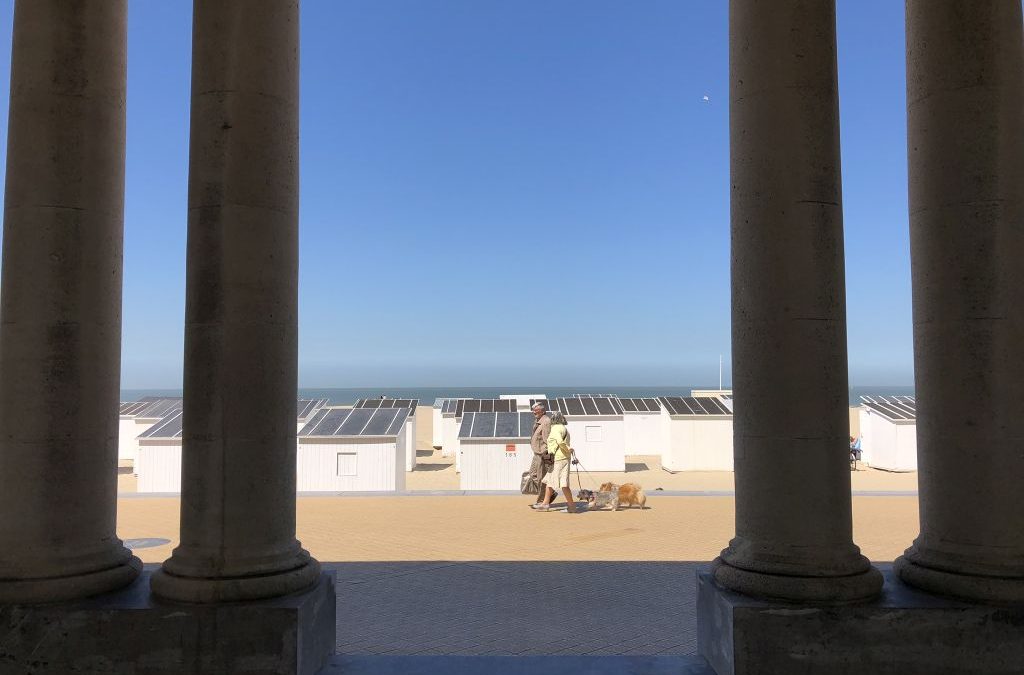Whoever allows everything to come at him without prejudice and does not follow the crowd, but his nose, is most richly rewarded by culture (or in a broader sense: life). Attracted by no more than a rather vague affinity with Russia, where I was only guided in my thoughts by Tolstoy, Dostoyevsky, Pantelejmon Romanov and Isaak Babel, I seized the opportunity of a stay at my Ostend dacha to watch a local theater festival show about the latter author. to pick up. As always I had packed badly: every time I resolve to do it thoroughly, every time I throw some random stuff in a travel bag due to lack of domestic staff. There was not even a carriage waiting for my summer palace, I had no other option but to transport my family on the Flemish roads with my own hands.
It was exceptionally hot and humid on the Belgian coast, as if I was walking around a tropical island in a bearskin and mink fur cloak. Yet that heat instantly fell off me in the modest theater. Koenraad Tinel, a Flemish artist with a turbulent war history – his father was a notorious Ghent collaborator, the young Koenraad was sent off as a child to spread SS propaganda – read excerpts from Isaak Babel’s The Red Cavalry and made at a furious pace matching ink drawings. Spectators could follow up close on a large screen how these were made. Oleg Lysenko, a Ukrainian musician living in the Netherlands, played a beautiful accordion and sang lingering, melancholic songs. I didn’t understand a word of it, and yet I understood everything.
The modesty of the piece made an impression. Without spectacular mise en scene, jovial interaction with the audience or noisy bustle, the performance exuded a pleasantly old-fashioned calm. Yet the event was anything but static. Tinel regularly laid a new sheet of paper on his drawing board and, with no more than a few strong ink lines and areas, sketched the powerful, raw images that Babel’s unrelenting lyrics evoked in him: Soviet riders crossing a river, the soulful son of a rabbi, a Jewish woman mourning for her father. Babel’s stories, Tinel’s drawings, Lysenko’s music: everything flowed seamlessly into a total experience.
After the performance, I wandered through the city, looking for a place to let the impressions sink in, but the atmosphere of the vast steppe was hard to conjure up among the high-rise buildings. I walked past one of the cafes that Joseph Roth reportedly frequented in the 1930s, along with other exil writers. Who knows, maybe the vodka would have flowed liberally if he had ever met Babel: both had Jewish backgrounds and were born in Ukraine (Babel in Odessa, Roth in Brody). But Babel has never been to Ostend, although his mind did value it for a while in the summer of 2018.
Ostend still has something raw and authentic, but the Disneyfication is also taking hold here: sailors and fishermen are gradually disappearing from the streetscape, the frayed edges are neatly trimmed and everything must make way for tourism, which is as soulless as it is lucrative. Roth and Babel, two eminently authentic, honest writers, would undoubtedly have a glowing hatred for the amusement park town that the local middle class dreams of.
My walk instinctively led me to the beach, but the sound of softly rolling waves I was so looking forward to was drowned out by brain-dead loitering youths blasting an endless loop of monotonous beats from their portable speakers. Where are those gulags when you need them? To top it off, another unnecessary firework burst. There was nothing to celebrate, it was purely to please tourists. Useless banging: this is what the neck shot with which the disgraced Babel was liquidated on Stalin’s orders must have sounded like in 1940.
Daan Pieters
